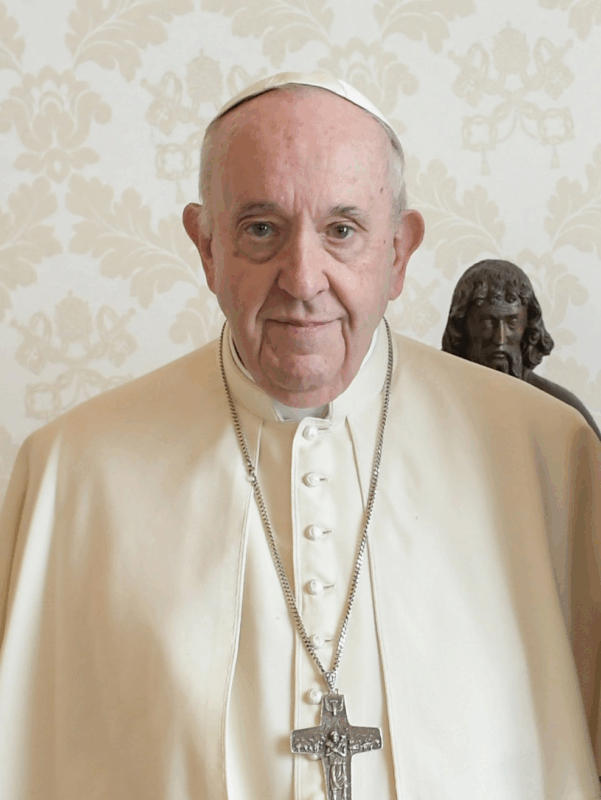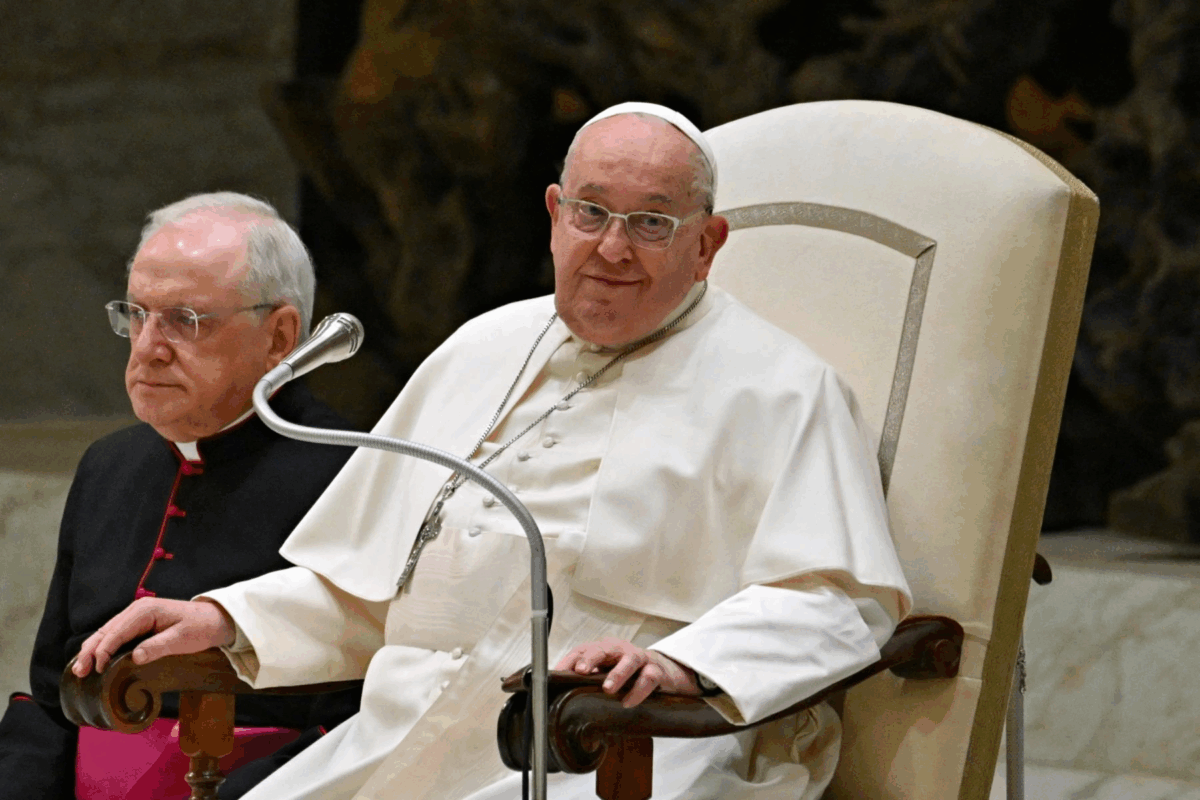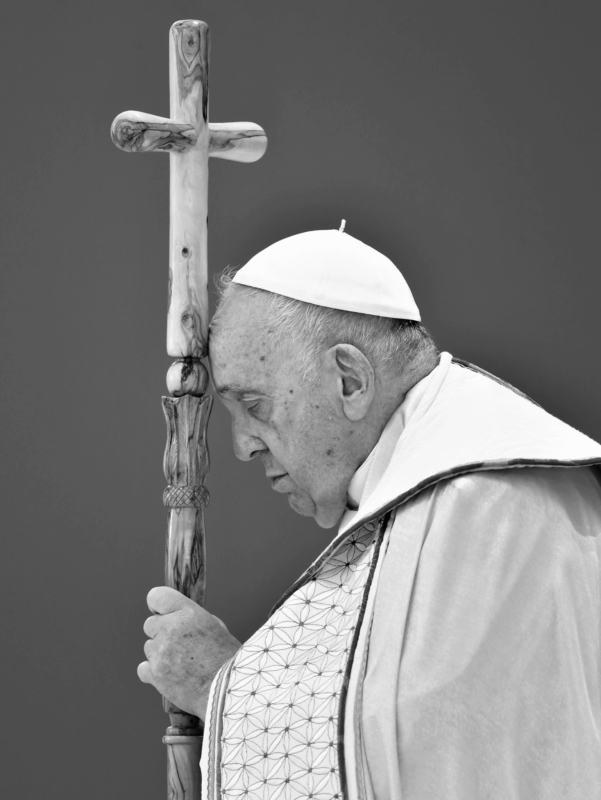News
Pope Francis, whose birth name was Jorge Mario Bergoglio, lived from 1936 to 2025.

“Pope Francis passed away on Easter Monday, April 21, 2025, at the age of 88 in his residence at the Vatican’s Casa Santa Marta,” according to a statement released by the Vatican on X. The leader of the Catholic Church died following a brief illness.
The pope had been hospitalized in February due to a respiratory infection and had faced several health issues in his later years. Despite his ailments, he consistently expressed his commitment to remain in his role, choosing not to follow his predecessor’s path of resignation. Born in Buenos Aires, Argentina, in 1936, Jorge Mario Bergoglio was elected pope in 2013 following the resignation of Benedict XVI. A Jesuit and former Archbishop of Buenos Aires, he became the first pope from the Americas and rose to prominence in Latin America for his outspoken views during Argentina’s financial crisis in the early 2000s.

As Pope, Francis presented a simpler, more modest image compared to his predecessor. A frequently recounted — though never officially verified — anecdote suggests that he declined to wear ornate papal attire for his first public appearance, reportedly telling an aide, “the carnival is over.”
Pope Francis consistently demonstrated a profound empathy for the marginalized, frequently emphasizing his solidarity with the poor, the displaced, and the vulnerable. Throughout his papacy, he championed the rights and dignity of refugees, especially those uprooted by war, persecution, and poverty. His compassion was particularly evident during the 2015 migration crisis, a humanitarian emergency that saw thousands of desperate people risking perilous journeys across the Mediterranean Sea in search of safety in Europe. In a bold and symbolic gesture, Pope Francis announced that the Vatican would open its doors to two refugee families, and he called on parishes, religious communities, and Catholic institutions across Europe to do the same, appealing to the moral conscience of the global Church.
He powerfully reminded the world: “Before the tragedy of tens of thousands of refugees fleeing death from conflict and hunger on a journey of hope, the Gospel calls us to draw near to the most vulnerable and the abandoned.” The pope’s advocacy extended to broader global conflicts as well. In response to recent violence in Gaza, he condemned the targeting of civilians and the destruction of critical infrastructure, declaring in a January address, “We cannot accept the bombing of civilians. We cannot remain silent while children freeze to death because hospitals are reduced to rubble or entire power grids are deliberately attacked.”
My wish for the year 2025 is that the entire international community will work above all to end the conflict that, for almost three years now, has caused so much bloodshed

Although Pope Francis was widely admired for his compassion and advocacy during times of global conflict and humanitarian crises, his papacy was not without controversy. One particularly challenging moment came in May 2024, when he faced backlash following reports from two Italian newspapers that he had used a homophobic slur during a private meeting where he expressed opposition to ordaining openly gay men as priests. The Vatican later issued a statement clarifying his remarks, and Pope Francis personally apologized, acknowledging the hurt caused and reiterating his respect for all individuals regardless of sexual orientation.
This incident clashed with the pope’s earlier, more inclusive image regarding LGBTQ+ issues—an image that had earned him praise from many progressive Catholics and human rights advocates. In 2013, early in his papacy, he famously said, “If someone is gay and is searching for the Lord and has good will, then who am I to judge?” That tone of compassion remained evident in 2023, when he allowed priests to give informal blessings to same-sex couples. “I don’t bless a same-sex marriage,” he explained. “I bless two people who love each other, and I ask them to pray for me.” Still, his tenure was shadowed by deeper institutional challenges, including public outrage over the Catholic Church’s historic cover-ups of child sexual abuse. In 2014, he described the scandal as a “moral wound” inflicted by the Church itself and publicly asked for forgiveness on behalf of its leaders.
One of the most emotionally charged and sensitive moments of Pope Francis’ final years came during his 2024 visit to Belgium. There, standing before victims and survivors of clerical abuse in Flanders, he issued a solemn and heartfelt apology for the decades-long sexual abuse of hundreds of children by Catholic priests. With visible sorrow, he acknowledged the immense suffering caused and admitted that the Church should feel “deeply ashamed” for not only the acts themselves but for the culture of silence that allowed such crimes to persist unchecked for so long.
Despite efforts to enact meaningful reforms, Pope Francis’ legacy on this issue remains complex. Under his leadership, the Vatican introduced new protocols aimed at preventing abuse, improving transparency, and holding clergy accountable. He established a dedicated office for safeguarding minors and pushed for greater cooperation with civil authorities. However, troubling reports continued to surface during his papacy—allegations that abusive priests were still being quietly transferred to different dioceses instead of facing formal investigations or prosecution. These cases sparked fresh criticism and renewed calls for deeper systemic change. For many victims, Francis’ public contrition was a step in the right direction, but the ongoing failures in enforcement showed just how much work remained to restore full accountability and justice within the Church.

